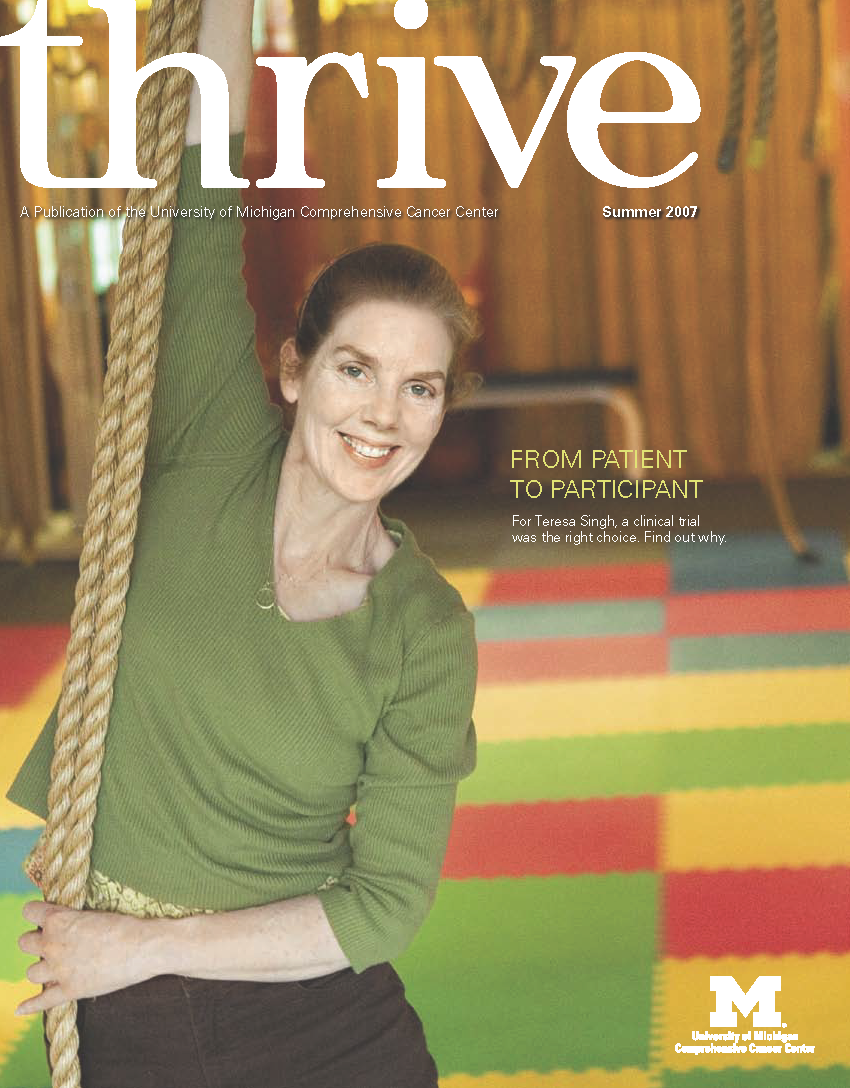Summer, 2007

When Teresa Singh was diagnosed with non-Hodgkin's lymphoma in 1996, her oncologist recommended the standard course of treatment: a combination of chemotherapy and radiation. But in researching her disease, Singh learned the likelihood of her cancer returning within 18 months was high. And if a recurrence was treated successfully, it was still likely to come back yet again. Standard treatment just didn't seem like the right choice for Singh, so she started looking for other options.
Shortly after learning she had lymphoma, Kelsey Hill shaved her head and had her hair made into a wig. And although she doesn't wear it too often -- opting instead for hats -- she has used it for special occasions. In fact, Hill and two of her friends from the Rogel Cancer Center, Sarah Cromer and Rachael Asher, agreed that although they all have wigs, they aren't as important to them as they thought they would be.
Maria Lyzen's husband, Michael, never accompanied her to doctor's appointments until she developed breast cancer. It was only then that he saw Maria, a nurse, making decisions together with her doctor. For him, doctors were people who simply told him what to do. And he did it.
Music therapy developed as a profession after World War II when nurses noticed that emotionally and physically traumatized veterans responded well to charity concerts in hospitals. Since then, studies have shown music therapy is effective in reducing anxiety, pain and nausea, while improving communication, emotional expression and quality of life.
Boost your immune system! Re-Energize! The claims in the aisles of the health food store can get pretty lofty. All the bottles look the same, and they carry names that sound like comic book characters. But how do you know what all these pills can do for you? The bottom line is: You just don't know. That's why it's so important to talk to your doctor before taking any supplements.
